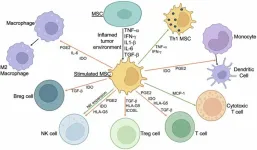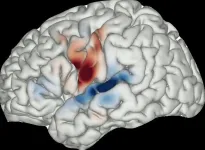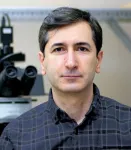In a new collection of essays, leading experts provide a historical perspective on and an ethical approach to emerging AI technologies; an overview of AI frameworks and principles; and an assessment of AI’s current advances, hurdles, and potential.
Realizing the Promise and Minimizing the Perils of AI for Science and the Scientific Community (University of Pennsylvania Press, 2024) contains contributions from experts in behavioral and social sciences, ethics, biology, physics, chemistry, mathematics, and computer science, as well as leaders in higher education, law, governance, and science publishing and communication. Their essays remind us that, even as our understandings of emerging technologies and their implications evolve, science’s commitment to core norms and values must remain steadfast. The volume’s conclusion advocates for following principles of human accountability and responsibility when using artificial intelligence in research, including transparent disclosure and attribution; verification and documentation of AI-generated data and analysis; a focus on ethics and equity; and continuous oversight and public engagement.
The editors The volume’s essays emerged from retreats organized in 2023-24 by the National Academies of Sciences, Engineering, and Medicine, The Annenberg Foundation Trust at Sunnylands, and the Annenberg Public Policy Center of the University of Pennsylvania. Its editors are:
Kathleen Hall Jamieson is the Elizabeth Ware Packard Professor of Communication and Director of the Annenberg Public Policy Center at the University of Pennsylvania.
William Kearney is the Executive Director of the Office of News and Public Information and Editor of Issues in Science and Technology at the National Academies of Sciences, Engineering, and Medicine in Washington, D.C.
Anne-Marie Mazza is the Senior Director of the Committee on Science, Technology, and Law and Senior Advisor of the Policy and Global Affairs Division at the National Academies of Sciences, Engineering, and Medicine in Washington, D.C.
Challenges of the AI age In the book’s concluding chapter, “Safeguarding the Norms and Values of Science in the Age of Generative AI,” Jamieson and National Academy of Sciences President Marcia K. McNutt call on the scientific community to ensure that the norms of science, including accountability and the transparency that makes replicability possible, are honored in the development of AI. They argue that AI poses special challenges to these norms through complications such as the “transformations that AI portends, the pace with which its capacities are evolving, and the opacity of its systems.” For example, they note that most data-intensive AI applications are “essentially opaque, ‘black-box’ systems,” making it challenging to determine accountability.
“… Governments around the globe have instituted structures to monitor and oversee the development of generative AI,” McNutt and Jamieson write. “It is both appropriate and necessary that the scientific community and the disciplines within it to do the same.”
Contributors The contributing authors are:
Marc Aidinoff, Assistant Professor of the History of Technology, Harvard University David Baltimore, Distinguished Professor of Biology, Caltech Wolfgang Blau, Managing Partner, Global Climate Hub Brunswick Group Vinton Cerf, VP & Chief Internet Evangelist, Google Juan Enriquez, Managing Director, Excel Venture Management Joseph Francisco, President’s Distinguished Professor of Earth and Environmental Science and Professor of Chemistry, University of Pennsylvania Urs Gasser, Professor of Public Policy, Governance, and Innovative Technology, and Dead of the TUM School of Social Sciences and Technology at the Technical University of Munich Mary L. Gray, Senior Principal Researcher at Microsoft Research, Faculty Associate at Harvard University’s Berkman Klein Center for Internet and Society Mark Greaves, Executive Director, AI20250, Schmidt Futures Barbara Grosz, Higgins Research Professor of Natural Sciences, Harvard SEAS Kathleen Hall Jamieson, Program Director, The Annenberg Foundation Trust at Sunnylands; Director, Annenberg Public Policy Center; Elizabeth Ware Packard Professor, Annenberg School for Communication, University of Pennsylvania Gerald Haug, President Leopoldina John Hennessy, President Emeritus, Stanford University, and Chairman, Alphabet Inc. Eric Horvitz, Chief Scientific Officer, Microsoft David Kaiser, Germeshausen Professor of the History of Science and Professor of Physics, Massachusetts Institute of Technology Jared Katzman, Ph.D. Student, University of Michigan William Kearney, Executive Director, Office of News and Public Information, National Academy of Sciences, Engineering, and Medicine Alex John London, K&L Gates Professor of Ethics and Computational Technologies and Director of the Center for Ethics and Policy, Carnegie Mellon University; Chief Ethicist at the Block Center for Technology and Society, Carnegie Mellon University Robin Lovell-Badge, Principal Group Leader and Head of the Laboratory of Stem Cell Biology and Developmental Genetics at the Francis Crick Institute Anne-Marie Mazza, Senior Director, National Academies of Sciences, Engineering, and Medicine Marcia McNutt, President, National Academy of Sciences Martha Minow, 300th Anniversary University Professor, Harvard University Tom Mitchell, Founders University Professor at Carnegie Mellon University Susan Ness, Former Commissioner of the Federal Communications Commission Shobita Parthasarathy, Professor of Public Policy and Women’s and Gender Studies and Co-Founder and Director of the Science, Technology, and Public Policy Program, University of Michigan Saul Perlmutter, Franklin W. and Karen Weber Dabby Professor, University of California Berkeley William H. Press, Leslie Surginer Professor of Computer Science and Integrative Biology at the University of Texas at Austin
###
Realizing the Promise and Minimizing the Perils of AI for Science and the Scientific Community
University of Pennsylvania Press | November 2024
Paperback: $34.95 | ISBN 978-1-5128-2748-4
eBook: Free download | ISBN 978-1-5128-2747-7
Read about this book at Penn Press.
Read and download the no-cost eBook edition at this link.
The Annenberg Public Policy Center of the University of Pennsylvania was established in 1993 to educate the public and policy makers about communication’s role in advancing public understanding of political, science, and health issues at the local, state, and federal levels.
The National Academies of Sciences, Engineering, and Medicine are private, nonprofit institutions that provide independent, objective analysis and advice to the nation to solve complex problems and inform public policy decisions related to science, engineering, and medicine. They operate under an 1863 congressional charter to the National Academy of Sciences, signed by President Lincoln.
The Annenberg Foundation Trust at Sunnylands hosts high-level conferences, seminars, and retreats on issues of world importance. The Sunnylands estate in Rancho Mirage, Calif., was the winter residence of the late ambassadors Walter and Leonore Annenberg, who welcomed presidents, royalty, international political figures, and cultural and entertainment icons to their home.
END







